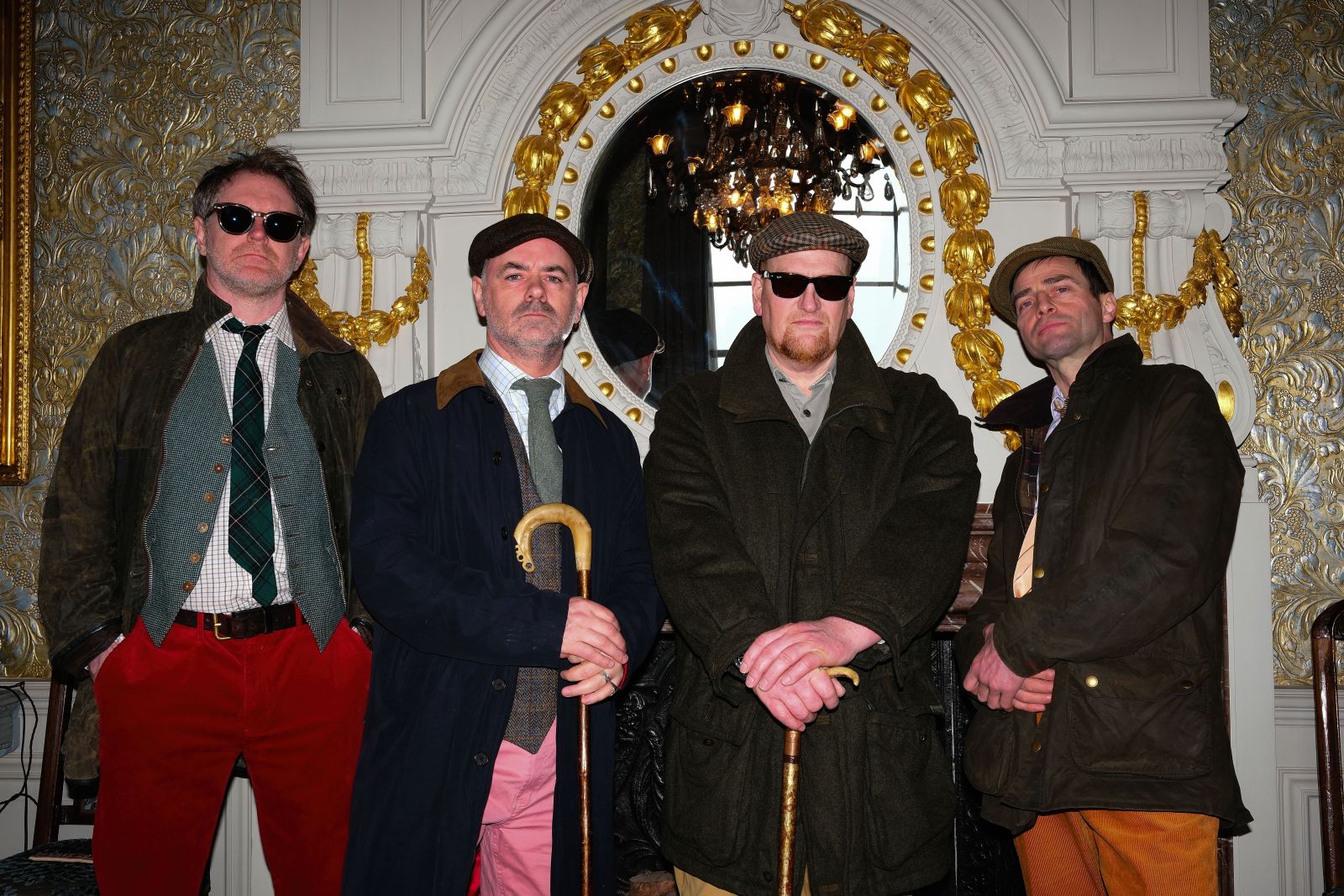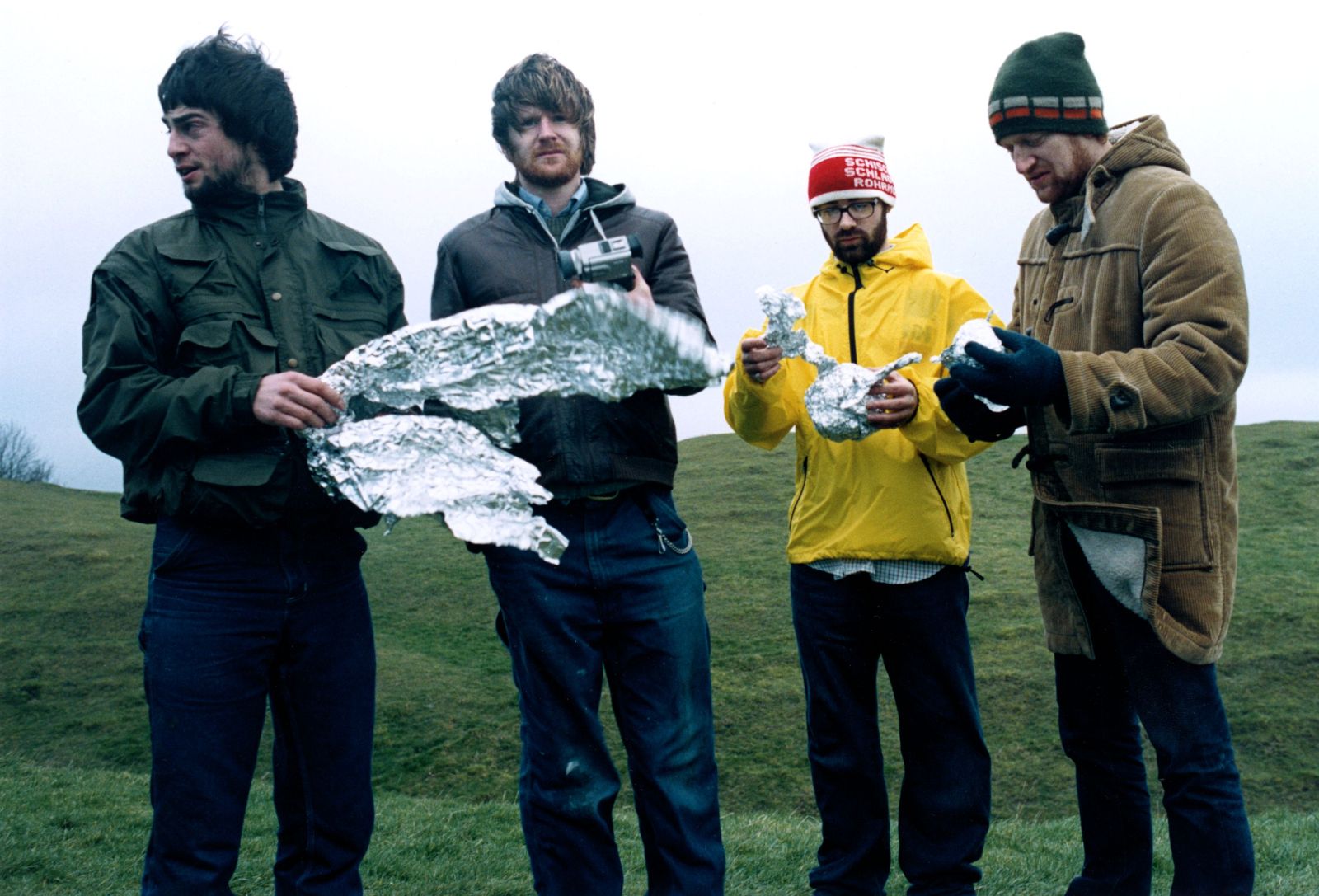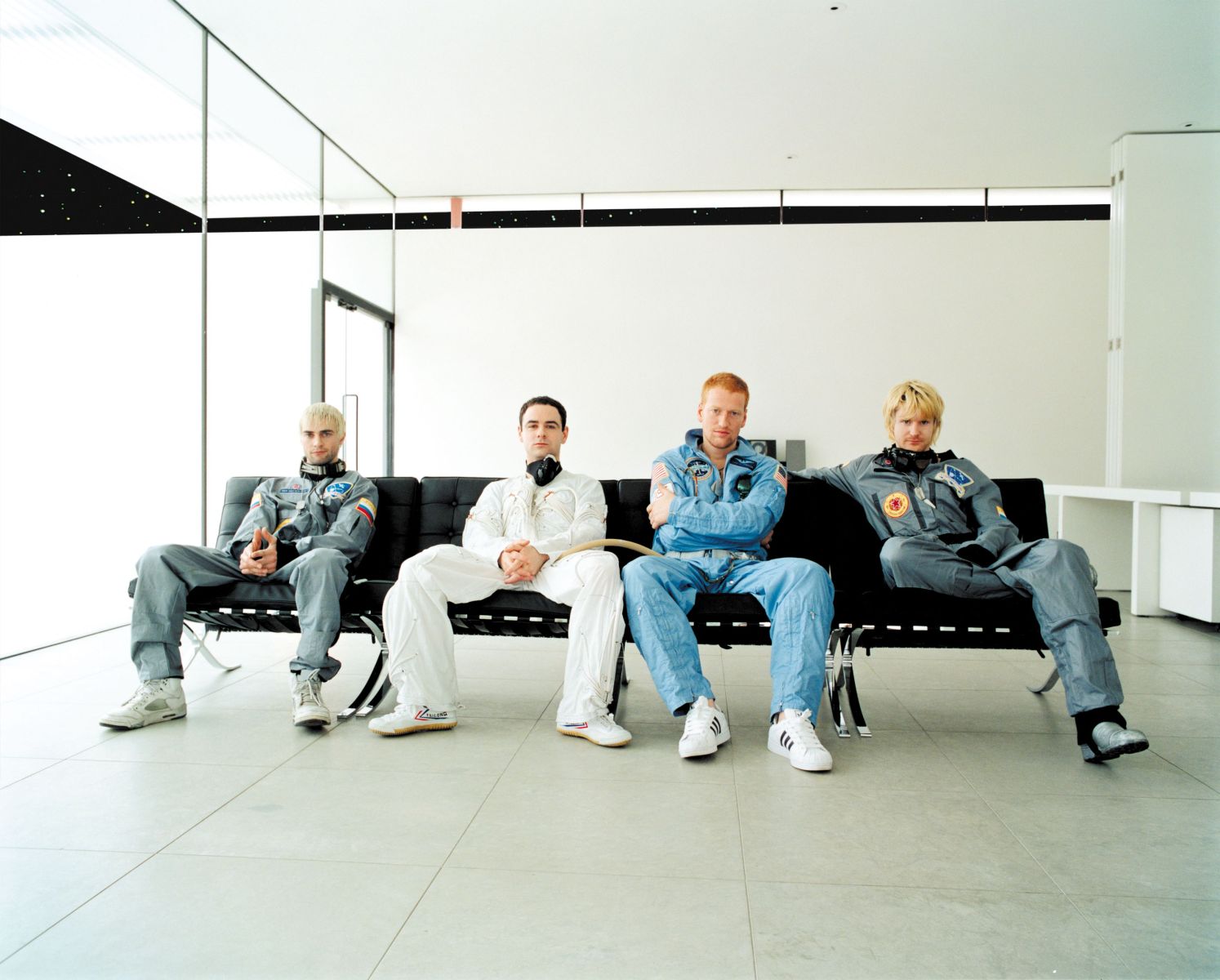The return of The Beta Band: 'We never wanted to be rock stars or make lots of money'
More than two decades after they split, The Beta Band are back for what’s bound to be two emotion-fuelled nights at Glasgow’s Barrowlands. As a music journalist and deputy editor of The Face at the time, Craig McLean was there at the start

‘We didn’t fancy being in a band and we didn’t want to play live. It just kind of crept up on us.’ So said Robin Jones to me as we sat on the grass in a park in Archway, north London in March 1999. As to why these reluctant musicians gave their pencilled idea of a group the name they did, that was courtesy of a suggestion from an underachieving pal: ‘The alpha band were the top of the class,’ explained John Maclean. ‘The beta band were the worst.’
The drummer and keyboard player in The Beta Band had acceded (of course reluctantly) to an interview (of sorts) because the feature I was writing was for American music magazine Spin, which was the cool, upstart, indie-leaning rival to Rolling Stone. Meanwhile, seated a few yards away on a different patch of grass, frontman Steve Mason and bassist Richard Greentree were yielding, twitchily, to a grilling by a French music journalist.
But agreeing to coverage in the British press? The Beta Band didn’t like that. Expressing themselves through madcap pop videos (styling cues: Mr Benn), colourful stickers (fireworks, tigers and stars, oh my!), their own fanzine (The Flower Press), 20-minute-plus jams (‘The Hut’, ‘Happiness And Colour’) and stage shows where there were more potted plants than instruments? The Beta Band were fully into all that.
Which is why we loved them so much when, with debut 12-inch-only EP Champion Versions (July 1997, made on a paltry budget of £4000), they burst out of an art-school hinterland plotted somewhere between Fife and London, and a musical neverland that had nothing to do with the prevailing headwinds of Britpop. But when it came to playing the game, ie promoting their music to audiences that would include people who knew them? Not so much.
In my day job back then as deputy editor at The Face, we had tried relentlessly to profile them. At that time, most… no, all young British artists who’d yet to release a debut album would have bitten our hands off for a feature. Not these guys. A Mojo interview only happened after the monthly agreed to their condition that they be asked the same questions put to The Beatles before their 1966 Shea Stadium concert.

The previous summer, ahead of the release of The Three EPs, a compilation of their first three 12-inches, they had submitted to an NME cover only if they could appear dressed as ‘African kings’. Jones admitted to me that ‘we meant military uniforms’, in the style of Ugandan dictator Idi Amin. They ended up styled as Biblical monarchs, with the equally incongruous headline: ‘A funkfolkjazzrockbovinebluesdub experience for the new millennium’. Well, quite. As the headline on my Spin feature would have it, with more factual than geographical accuracy, this was ‘The Weirdest Group in England’.
And now here we were in early spring 1999, a couple of months out from the release of their self-titled debut album. We were, too, exactly a year shy of the band’s now-legendary (and appropriately tangential) appearance in the film of Nick Hornby’s 1995 novel High Fidelity. In the Hollywood adaptation, John Cusack’s Chicago record-shop owner Rob Gordon demonstrates his own discerning taste, his customers’ sheep-like awe of him, and the artists’ undeniable mastery of a good groove, by playing the recalcitrant Scotsmen. ‘I will now sell five copies of The Three EPs by The Beta Band,’ says Rob, pronouncing ‘beta’, annoyingly, as ‘bayta’. Twenty-three seconds of the chorus of ‘Dry The Rain’ later: sold to the head-nodding punter!
After The Three EPs, Greentree, Jones, Maclean and Mason were rarely beta; often they were much worse. Giddy on a £300,000 budget from EMI, they began recording some of The Beta Band album on the north-west coast of Scotland, in a hut that belonged to Maclean’s granddad. Those two jams (‘The Hut’, and ‘Happiness And Colour’) were both intended for the album, and were duly mailed out to reviewers (I prize my cassette copies). But then the band decided they were boring and chopped them off the finished tracklisting.
There was similar back and forth with the penultimate track, the ten-minute long ‘The Hard One’, which had the unfocused wiggy-ness of much of the rest of the album, only more so. It features the piano motif and lyrics from ‘Total Eclipse Of The Heart’, the Bonnie Tyler hit written by Jim Steinman. Steinman objected to the usage and at one point threatened legal action, which jeopardised the song’s inclusion on the album; in its original form anyway. But in the end, Steinman decided he liked the track and ‘The Hard One’ stayed.
Two days after our interview, there was an invitation-only listening party for the album in a packed bar in east London. Noel Gallagher was there, as was Nick McCabe, the Verve guitarist who produced the Betas’ first EP. At one point I heard Noel talking to another journo about the album. ‘From what I can hear, it’s pretty fuckin’ mental!’ he shouted above the free-booze racket. ‘A bit of Eddie Cochran, a bit of Ian Dury & The Blockheads, too. It’s fucking really good!’
Not that The Beta Band were pleased. Their idea of doing press in support of the album was to sabotage it. In an NME interview that ran the week of release, Mason proclaimed it as ‘definitely the worst record we’ve ever made and it’s probably one of the worst records that’ll come out this year’. You want specifics? ‘It’s got some terrible songs on it, our album. None of them are fully realised or fully even written. Half-written songs with jams in the middle.’
They passed the buck to their label, blaming lack of cash and time, neither of which seemed credible even then. And Miles Leonard, who ran the Regal imprint at EMI, immediately clapped back. ‘They’re lame excuses,’ he told the magazine. ‘They had as much time as they wanted to have to make it; they were not forced to do anything they didn’t want to.’ Still, the exec admitted he did rein them in. ‘They wanted it to be a double album and they wanted to record each side in a different continent: one in Tokyo, one in Mexico, and so on. We tried to plan it, but to do it would have been impossible. It would have cost three-quarters of a million pounds or something and they would have lost the plot.’
The only way was (waywardly, diagonally, eventually) down. A second album, Hot Shots II (2001) was recorded with Brit hip-hop producer C-Swing. It was hobbled out of the gate when it transpired that the band’s first choice of lead single, the hippy fantasia ‘Squares’, had the same sample as ‘Daydream In Blue’ by I Monster, which was already getting radio airplay. So they swapped it for ‘Broke’. With almost 10m plays, ‘Squares’ is now The Beta Band’s second most streamed track on Spotify (‘Dry The Rain’ has 43m). ‘Broke’ has 339,000.
Heroes To Zeroes, their third and final album, was released in April 2004. Hired by their PR, I wrote the biography (a glorified press release, effectively) for the record. That’s normally the easiest, most straightforward interview an artist can do. But The Beta Band wouldn’t even agree to that, and I had to write it from material supplied by their label. The writing was on the wall. Four months later they announced they were splitting up, £1.2m in debt to EMI. That December, The Beta Band played their final show at Edinburgh’s Liquid Rooms.

But now, 21 years later, after solo careers and film directing and getting on with life, and after recovering from the very real mental-health trauma of those days, The Beta Band are back. They’ve reformed to re-release The Three EPs in a ‘deluxe’ new vinyl edition, and to play a UK and North American tour. These champions’ aversions to the ‘normal’ business of being a band have, clearly, abated.
Well… not entirely. They’re still barely doing any interviews. Mason has talked to the BrooklynVegan podcast to promote the US and Canadian shows. And the band spoke to The Guardian in March, with Mason summing up their still-intact position thus: ‘We never wanted to be rock stars or make lots of money. Our ambitions were solely artistic and we pushed ourselves until the last minute. Then we split up. But how many bands can say they spent £1.2m on art?’
Beyond that, let’s give them the last, wonky word. Here’s what they said, collectively, when their comeback was announced in spring: ‘The Beta Band, as everyone knows, is an institution, like Bedlam or the RSPCA, and as such has its own indelible stain on the bedsheet of western culture. It was the great John Noakes who said: “You have to shake it out at least once every couple of decades, if you want to know what the moths did.” So with both those facts in mind, we realise the time has come to show the wall the Luminol, kill the lights and hit the UV.’ The Beta Band, then: still alpha contrarians. The gigs will be sensational.
The Beta Band are touring the UK until Saturday 4 October; main picture: Neil Thomson.